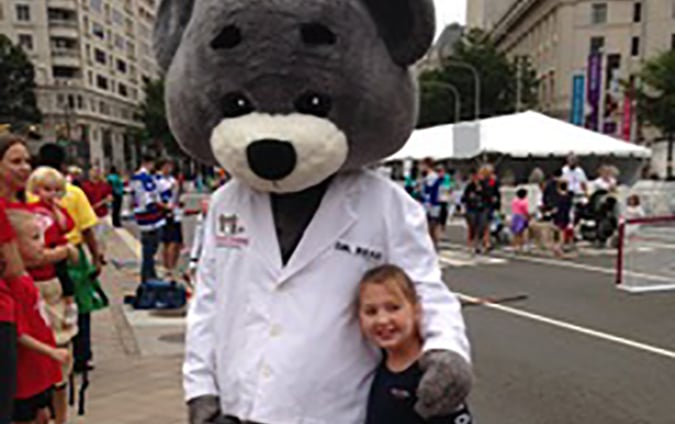
Novel Therapy Helps Alex Overcome a Brain Tumor

Alex is a thriving 16-year-old who loves to dance, ski and ice skate. When she arrived at Children’s National Hospital as a 9-month-old, however, her life was much less certain. She was in a coma and had a rare, malignant brain tumor. Medical specialists at her local hospital said she would not survive.
Dr. Roger Packer, neurologist and director of our Brain Tumor Institute, was more optimistic. “Based on our research and experience caring for other patients with similar malignant tumors, we thought Alex could be neurologically stabilized and possibly effectively treated,” he recalls.
Alex’s team started treatment with an intensive, novel chemotherapy the day after she arrived. Within four days she was off life support and sucking her thumb.
In her third month at our hospital and after six rounds of chemotherapy, an MRI showed that most of her tumor was gone. Her team offered low-dose oral chemo
part of a research trial underway at Children’s National at the time — to attempt to eradicate the remaining disease and avoid radiation therapy. “We opted in because we trusted Dr. Packer and knew he had Alex’s best interest at heart,” Danielle says. The family’s participation contributed to data that showed the drug’s impact on Alex’s mental development.
Alex has been in remission for 14 years. “Being a part of this novel approach gave her a real chance not only to survive, but to survive as a normal, competitive child and adult,” Dr. Packer says. “Outcomes like Alex’s are what keep us striving to develop therapies that will result in more similar outcomes.”

Make a Difference
Your charitable donation changes children’s lives. Support exceptional health care and discoveries that offer hope, healing and brighter futures.



